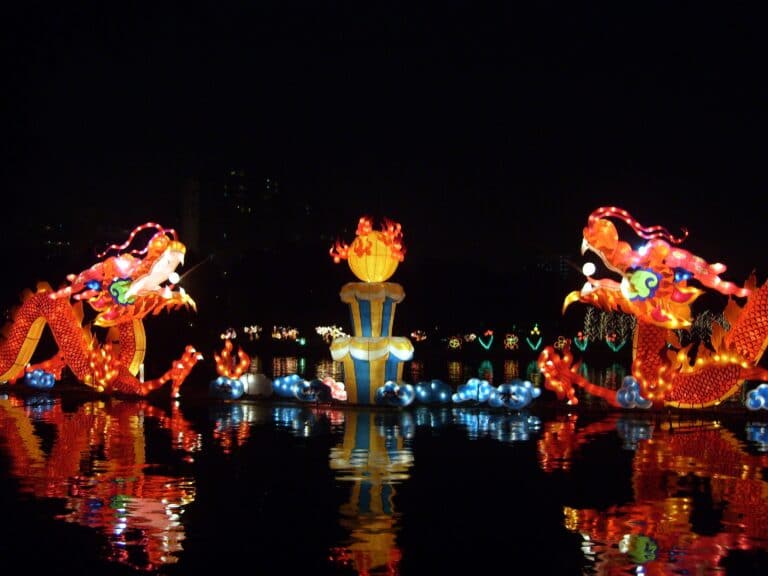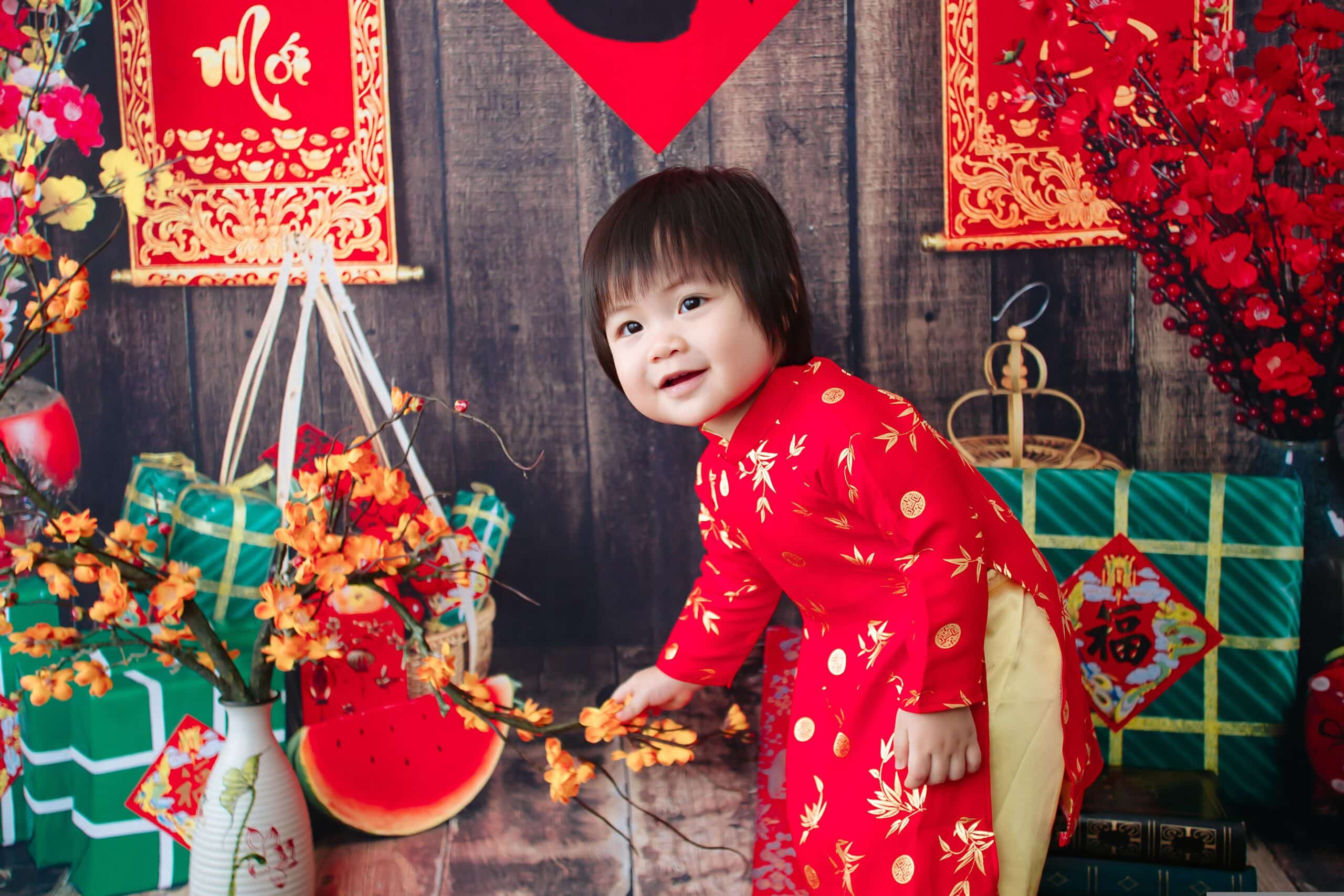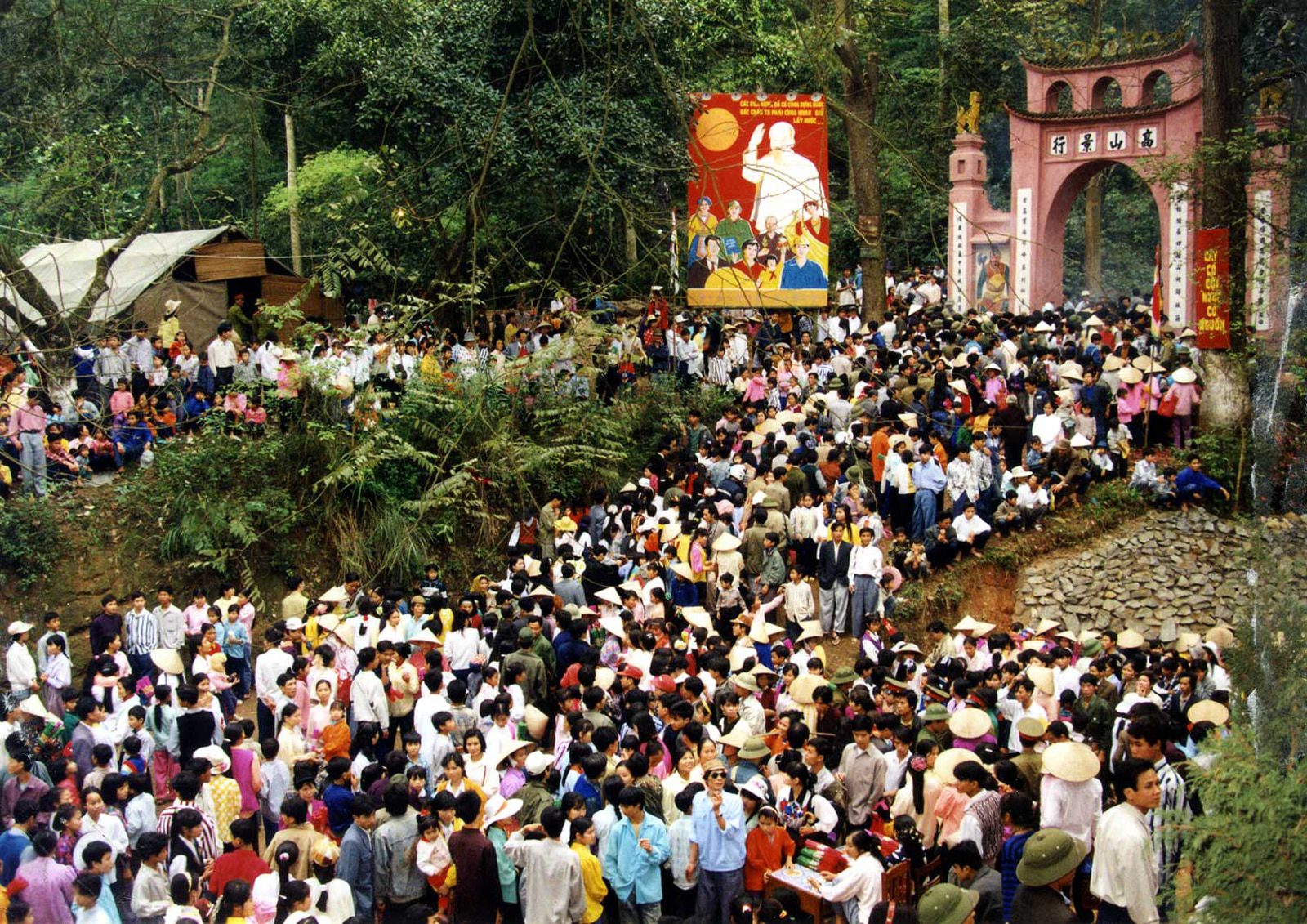
Vietnam has a unique culture that has developed over thousands of years. This has resulted in a plethora of special festivals that vividly showcase Vietnamese beliefs and traditions. Apart from admiring the stunning natural scenery, it is also worth visiting some Vietnamese festivals to gain a deeper understanding of this peaceful country. Vietnam is separated into three regions: northern, central, and southern. The festivals reflect the distinct qualities of each location. The Top 5 Festivals in Vietnam, held all year round, are listed here.
Lunar New Year (Tet Nguyen Dan)
Time: Beginning of Lunar New Year
Location: Hanoi, Vietnam
The most important festival and holiday in Vietnam is Lunar New Year. Schools, businesses, and manufacturing are all temporarily shuttered. It is a time for family reunions and festivities as people return to their homes. Most Vietnamese people prepare for this auspicious day by cleaning and adorning their homes, as well as cooking delectable delicacies. During this period, you may explore a variety of unique Vietnamese customs. For example, the significance of the first person entering the house on the new year, offering New Year wishes, ancestral worship, and presenting fortunate money to the old and children (known as “Li Xi” in Vietnamese). During Tet, Vietnamese people would visit relatives and visit pagodas and temples to pray for a brighter year ahead.

Festival of the Hung King Temple
Time: 8th to 11th day of the 3rd lunar month
Location: Hung Temple, Co Tich village, Hy Cuong commune, Phong Chau district, Phu Tho province.
The National Hung King Temple Festival is held at Phu Tho. It is held yearly to honour Hung Kings, the nation’s founder, as the name indicates. People from all across the country and those living abroad flock to the major temple on Nghia Linh, Phu Tho, to participate in this profound celebration. The festival’s atmosphere is always lively, with many diverse folk activities such as human chess, bamboo swings, rice cooking competitions, “nem con,” wrestling, lion dance, and so on. The march up to Den Thuong (Upper Temple), which includes governmental dignitaries, peasants, and many guests, is the festival’s climax.

Budda’s Birthday
Time: 9th day of lunar April
Location: Quan Su Pagoda, 73 Quan Su street, Tran Hung Dao ward, Hoan Kiem district, Hanoi
With more than half of the population practicing Buddhism, Buddha’s Birthday has become a very important holiday for Vietnamese people. It is their opportunity to celebrate Buddha’s birth, enlightenment, and death. It is not only a religious celebration, but also a national holiday in Vietnam. Before the event, hundreds of monks and thousands of people would congregate in large pagodas designated as the holding location. These pagodas will be cleaned and embellished with a statue of Buddha in the center of a pink lotus. There are also several bright lanterns, various types of flowers, and little lotus flowers surrounding them.
Buddhist devotees will meet early on the 15th day to prepare for the celebration. The ceremony and entertainment activities are the two primary components of Buddha’s Birthday. Sacred traditions such as presenting incense and flowers to honor Buddha’s birthday and pray for peace have been practiced for thousands of years. On this day, individuals will also actively participate in charitable activities such as assisting the unfortunate, mentally handicapped, and aged. During the event, you will be able to sample excellent Vietnamese vegetarian meals while visiting the pagodas.
Mid-Autumn Festival
Time: 14th to 15th day of the 8th lunar month
Location: Hang Ma street, Hoan Kiem district, Hanoi
Every Vietnamese youngster fantasizes of attending the Mid Autumn Festival, complete with a tummy full of mooncakes and their own beautiful lantern. In Vietnamese, mid-autumn is also known as “Children’s Festival” or “Tet Trung Thu.” Though this holiday is held in China and other Asian nations, the Vietnamese version is distinct, with its own customs and tales. It takes a long time to prepare for this wonderful occasion. In the weeks leading up to it, you may witness lion dancers rehearsing on the streets, as well as mooncakes, lanterns, and colorful masks peddled on every corner.
The mood grows more lively throughout the event. The streets are clogged with people and their children. Music is louder and performances are more intense in particular areas, such as Hang Ma street in Hanoi or the riverbank of Hoi An old town. The most rewarding aspect of participating in the Mid Autumn Festival, however, may be witnessing the delighted smiles of every youngster.
Ghost Festival/ Wandering Souls Day
Time: 15th night of the 7th lunar month
Location: Hue city, Vietnam
Many festivals in Vietnam, like the Wandering Souls Day, take place on lunar days. Lunar July is thought to bring poor luck as well as curses of wandering spirits. It is the time of year when ghosts walk the streets and cause havoc for everyone. The only day they can be fed is the 15th of July every year for the lost ghosts who had no family or died of hunger. They will be upset and cause disturbance if they are hungry. As a result, this month, all Vietnamese people will make offerings and help destitute souls. Many fires will be lit in their honor to burn votive paper. People will go to pagodas and temples to give donations of clothing, food, and other stuff to worship ghosts and hungry spirits.’